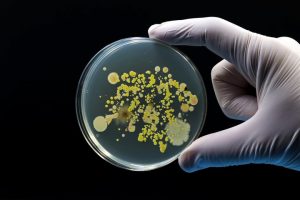
Much research has been conducted on selenium and its effects on the body. A recent study found that higher selenium levels in mothers during pregnancy were associated with a lower risk of streptococcal infections in children, suggesting a possible protective effect.
The Role of Selenium
Selenium is a mineral found in numerous foods such as garlic, onions, legumes, broccoli, mushrooms, nuts, and asparagus. In fact, this important trace element can support healthy body function, including metabolism, the immune system, and thyroid function. Selenium also has many benefits during pregnancy. In addition to its antioxidant properties, selenium has the potential to reduce the risk of pregnancy complications such as preeclampsia, intrauterine growth restriction, premature birth, and miscarriage. Furthermore, this mineral plays a significant role in fetal development and helps to counteract congenital malformations.

According to a new study published in PLOS ONE, scientists at Hokkaido University have found that exposure to certain metals and trace elements during pregnancy can influence a child’s risk of streptococcal infections. These infections are common in children, especially those caused by group A streptococci, a bacterium that often causes illnesses such as sore throats, skin infections, and, in severe cases, more serious complications such as scarlet fever or invasive diseases. The findings could contribute to improved strategies for preventing childhood infections.
The research team studied more than 74,000 mothers and their children as part of a nationwide study in Japan. The experts measured the mothers’ blood levels of various metals and trace elements, including selenium, mercury, cadmium, lead, and manganese. The researchers then observed the children to see if they developed streptococcal infections between the ages of three and four. Statistical analyses were used to investigate possible links between the mothers’ metal exposure and the children’s risk of infection. “We found that mothers with higher selenium levels during pregnancy were less likely to have children who developed streptococcal infections,” said Hiroyoshi Iwata, lead author of the study from the Center for Environmental and Health Sciences at Hokkaido University.
Further Research is Needed to Determine the Optimal Selenium Levels During Pregnancy
“This association was strongest in mothers with the highest selenium levels in their blood. However, high selenium concentrations during pregnancy can lead to toxicity and side effects, so caution is advised. Since this study is based on a single blood sample from pregnant mothers, the results of this study should not be used as the sole basis for recommendations on selenium intake during pregnancy.”
Selenium is a trace element that plays an important role in the immune system. Previous studies have shown that it can help the body fight infections by strengthening the immune system. The new findings support the assumption that adequate selenium levels during pregnancy may strengthen the child’s defenses against bacterial infections. This study underscores the importance of adequate selenium intake during pregnancy for the long-term health of children and adds to the growing body of evidence that selenium plays an important role in immunity. However, this study only examined the association between maternal selenium levels and streptococcal infections and did not assess the association with other infectious diseases. Further research is urgently needed to fully understand how selenium supports the immune system and to determine the optimal levels during pregnancy.


